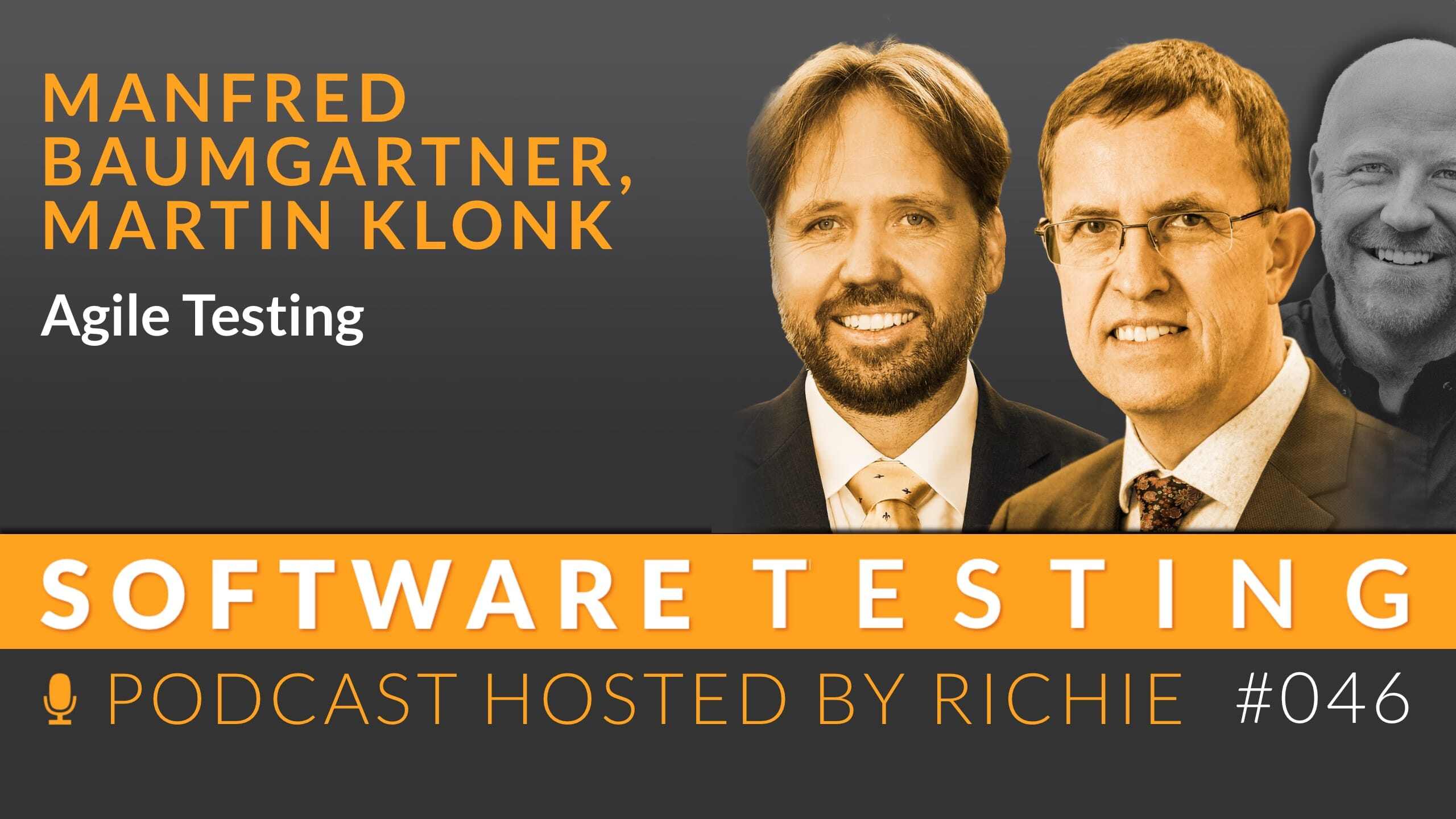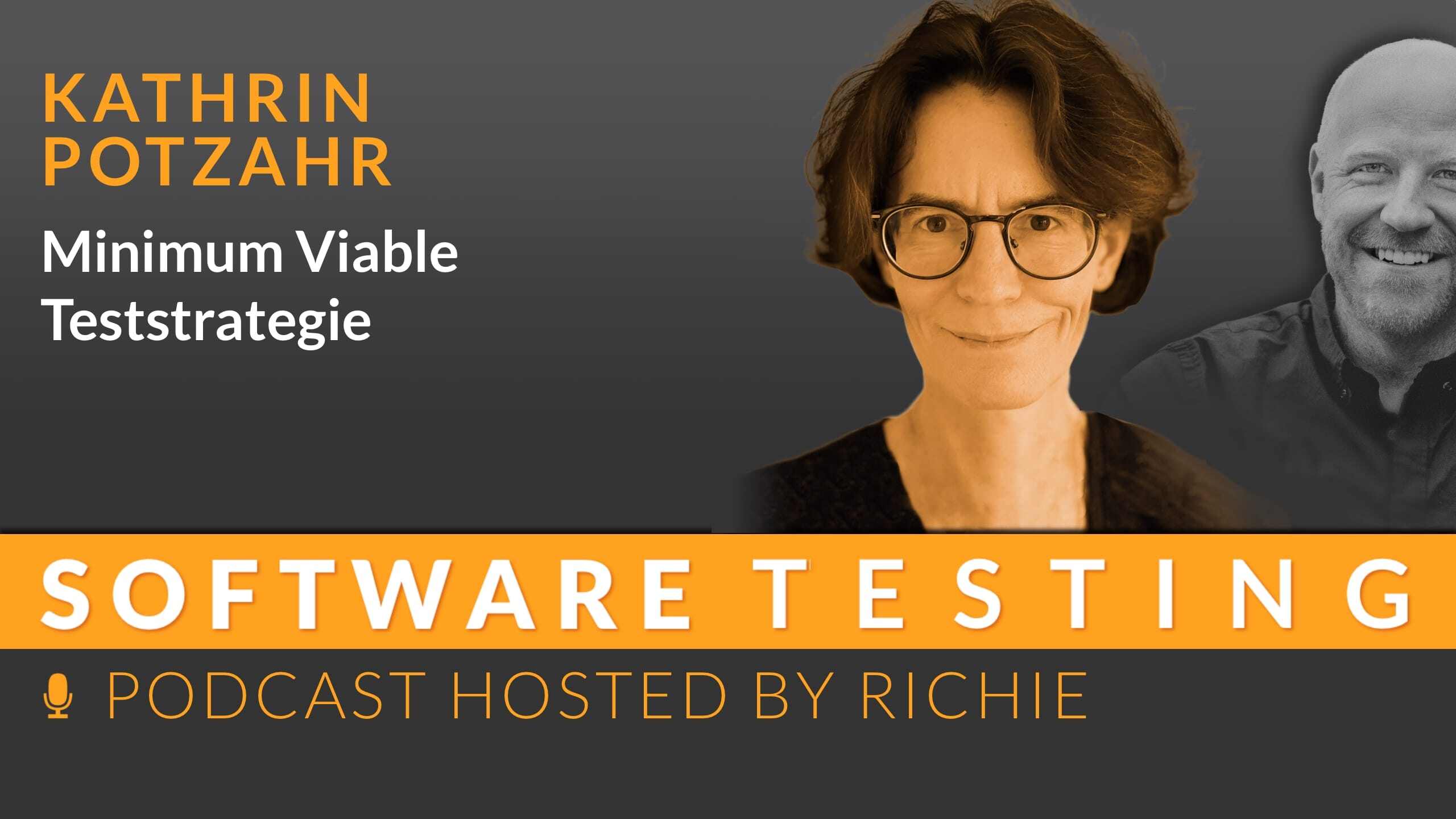Minimum Viable Test Strategy
Podcast Episode: Minimum Viable Test Strategy Written test strategies are endless and in the end nobody reads them. Many people are probably familiar...

'So, we don't need testers anymore, because we're working agile now! That was the impetus for writing the first edition of 'Agile Testing' more than 10 years ago. To dispel prejudices and provide ideas on how quality and testing can work in agile projects. A lot has happened since then. Today, 13 years later, not only have the test methods and tools evolved, but also the role of developers and test specialists.
"If I say I'm an agile tester and I have no idea about equivalence partition testing or boundary value testing (...) then I'm doing something wrong" - Manfred Baumgartner, Martin Klonk
Manfred Baumgartner has over 35 years of experience in software development, specializing in quality assurance and software testing. He studied computer science at the Vienna University of Technology and then worked as a developer and test manager before establishing QA consulting services at Nagarro GmbH in Vienna in 2001. Baumgartner is a member of the ASQF e.V. board and has written specialist literature on topics such as system testing and agile test techniques.
Martin Klonk studied industrial engineering in Berlin and started working as a professional tester in IT in the mid-1990s. He has remained a passionate tester ever since and has worked at times as a project manager and test strategy consultant throughout Europe. He has been a member of the Austrian Testing Board since 2010 and its president since 2023.
Today I'm talking to Manfred Baumgartner and Martink Klonk about agile testing. We discuss the development, challenges and future of agile testing with a focus on quality and integration into agile teams. My guests share their experiences and we reflect on the role of testers in the changing world of software development.
Today I would like to welcome Manfred Baumgarten and Martin Klonk, co-authors of our book "Agile Testing", which is now in its third edition. This conversation not only sheds light on the book project itself, but also on our shared view of the development of agile testing, the use of tools and methods and our perspectives on ASTQB. We also touch on the topic of why we decided to dedicate our free time to writing such works.
Manfred takes us back to the initial spark for the book project around ten years ago, when there was a misconception that testers were superfluous in agile projects. His motivation was to take up the cudgels for testing within agile frameworks. He emphasizes that despite the changes in mindset over the last decade, the fundamental need for qualified test engineers in agile projects remains. The section provides insights into the shift from more individual project work to more complex, scaling projects.
A key focus is on the question: Why do we need a third edition? Here Manfred shares his experiences with the ISTQB and the growing influence of DevOps on testing. Martin adds his observations on global perspectives on agile working and how agile practices have become established over time. We discuss the merging of traditional testing methods with agile approaches and recognize that despite technological advances, the basic principles of testing remain.
Rapid market demands and technological advances are influencing the testing process. The topics of DevOps and security are gaining in importance, while at the same time a strong specialization within the testing area is observed. These developments call for a reassessment of the tester role - away from being a pure specialist to a technically skilled test engineer.
Finally, we reflect on our wishes for testers in the context of agility. Manfred advocates a stronger commitment to quality within teams and an engineering approach to testing using learned techniques. Martin emphasizes the importance of self-awareness and a coaching approach when dealing with teammates. I add that a critical look at the real added value of testing is crucial to ensure effective quality testing.

Podcast Episode: Minimum Viable Test Strategy Written test strategies are endless and in the end nobody reads them. Many people are probably familiar...

Podcast Episode: Test Pyramid - A Critical Look Everyone knows the test pyramid, everyone immediately has its image in mind. Sometimes it has three...

Podcast Episode: AI, Test Automation and Skills In this special summer episode, I've answered some of the most common questions you've sent me over...